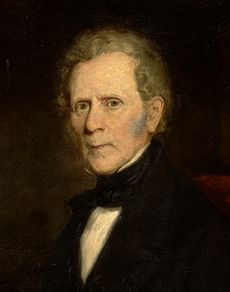Alexander Crichton
| Alexander Crichton | |
|---|---|

Alexander Crichton
|
|
| Born | 2 December 1763 Newington, Edinburgh |
| Died | 4 June 1856 |
| Nationality | Scottish |
| Occupation | doctor of medicine physician author |
Sir Alexander Crichton (2 December 1763 – 4 June 1856) was a Scottish physician and author.
Born in Newington, Edinburgh, Crichton received his M.D. from Leyden, Holland, in 1785. He developed his medical skills through studies at Paris, Stuttgart, Vienna, and Halle. He returned to London in 1789, becoming MRCS but by 1791 he had moved from surgery, becoming a member of the Royal College of Physicians, and a Fellow of the Linnean Society of London in 1793, holding the post of physician at Westminster Hospital between 1794 and 1801.
In 1803, Crichton was invited to become the emperor of Russia's personal physician, and between 1804 and 1819 was appointed Physician in Ordinary (personal physician) to Tsar Alexander I of Russia and to Maria Feodorovna, the Dowager Empress. He was also head of medical services in that country, receiving several Russian and Prussian honours.
Retiring to England, Crichton wrote several books dealing with medical and geological subjects, becoming a member of the Royal Geographical Society in 1819. Crichton's extensive collection of minerals consisted mainly of specimens from Siberia, Russia, Norway, Hungary, Germany, the UK, the US and India. These were acquired during his tenure as physician to Alexander I of Russia and during his travels throughout Europe when he was studying medicine.
He was the second person to describe a condition similar to the inattentive subtype of attention-deficit hyperactivity disorder (ADHD), in his book An inquiry into the nature and origin of mental derangement: comprehending a concise system of the physiology and pathology of the human mind and a history of the passions and their effects (1798).
...
Wikipedia
